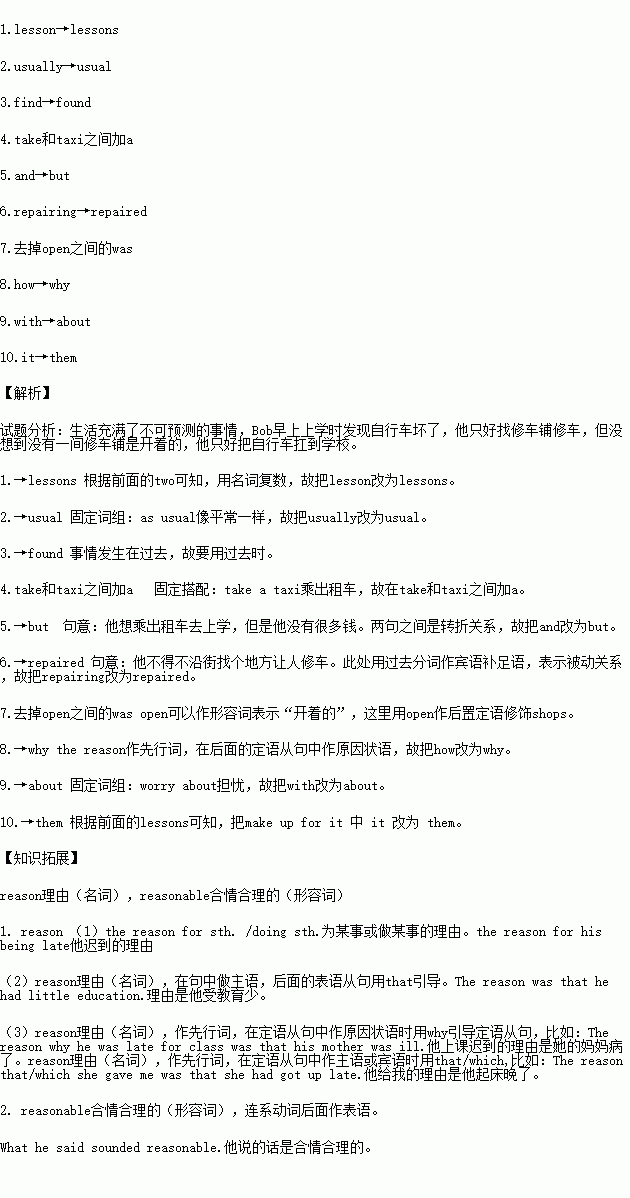题目内容
假定英语课上老师要求同桌之间交换修改作文,请你修改你同桌写的以下作文。文中共有10处语言错误,每句中最多有两处。错误仅涉及一个单词的增加、删除或修改。
增加:在缺词处加一个漏字符号( ),并在其下面写出该加的词。
),并在其下面写出该加的词。
删除:把多余的词用(\)划掉。
修改:在错的词下画一横线,并在该词下面写出修改后的词。
注意:1.每处错误及其修改均仅限一词;
2.只允许修改10处,多者(从第11处起)不计分。
Life is always full of something that you can not expect. Bob is very sorry to have missed the first two lesson this morning. He got up early as usually in the morning, but when he was ready to leave he find his bicycle’s front tyre (轮胎) flat. He wanted to take taxi to school, and he didn’t have any money on him. He had to look for a place along the street to get his bicycle repairing. Unluckily, there were not any bicycle repair shops was open in the early morning. So he had to walk to school, carrying his bicycle all the way. That was the reason how he was late for school. He told Mr. White not to worry with his lessons, for he would make up for it and turn to his teachers for help if necessary.

